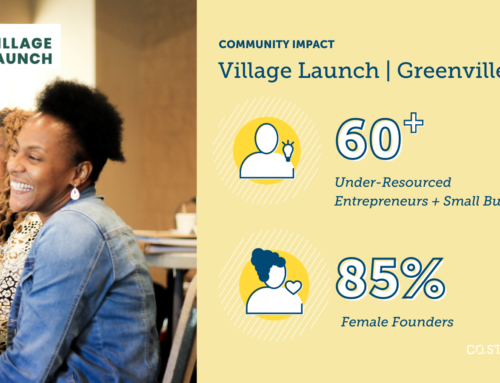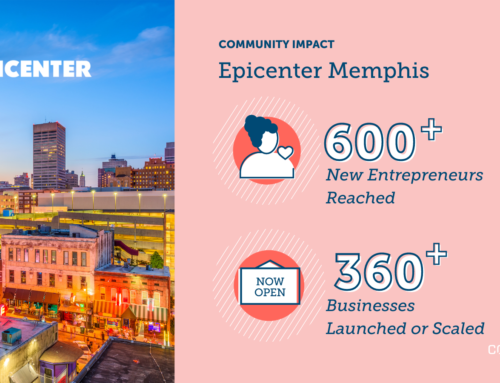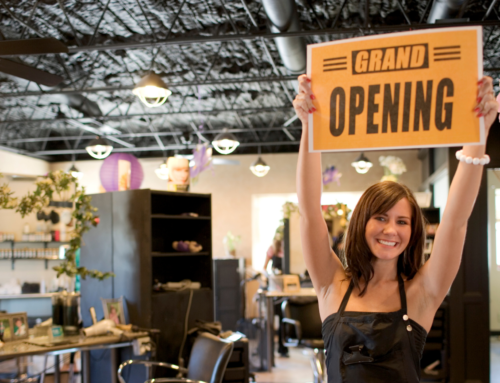Shining a light on burnout among entrepreneurs and the people who support them
Burnout is not a new topic for the business world. The nature and risks of employee burnout have been extensively researched in relation to large corporations. Burnout among entrepreneurs has only recently started receiving more attention.
A recent study reported in Harvard Business Review found evidence that entrepreneurs are more at risk for burnout for the following reasons: they are extremely passionate about their work, are socially isolated, have limited safety nets, and work in conditions of high uncertainty. The study found that entrepreneurs who reported high scores of “obsessive passion” were more likely to say they experienced burnout.
Entrepreneurs are more at risk for burnout for the following reasons: they are extremely passionate about their work, are socially isolated, have limited safety nets, and work in conditions of high uncertainty.
Working closely with ecosystem builders who support entrepreneurs, CO.STARTERS sees burnout as an emerging issue in our network. Many entrepreneurial support organizations are themselves entrepreneurial in nature, and are often led by entrepreneurs taking on community support roles in addition to running their own ventures. These grassroots leaders who are championing starters and attempting to help them avoid burning out, are themselves navigating the same dangers.
What is Burnout?
Burnout is generally understood as emotional or physical exhaustion brought about from prolonged stress or frustration, usually related to one’s workplace. In the entrepreneurial context, where work and life blur together, burnout becomes even harder to recognize or define. Early and even later stages of burnout often become a “normal” way of functioning.
“Burnout is the place where operating and working and living a normal life gets incredibly hard,” —Will Joseph
“Burnout is the place where operating and working and living a normal life gets incredibly hard,” says Will Joseph. One of the cofounders of CO.STARTERS, Will now works with Good Startups, which works with entrepreneurs to build practices that help ensure emotional health. “You might call it depression or being stressed out… there are all kinds of different words. It’s when the concerns and fears and the pace we’ve been driving at are not sustainable and we begin to recognize it. We’re not sure what to do and we’re not able to continue with how we’ve been operating.”
“Entrepreneurs are very needy people, and nonprofits are always going to take all the energy you have to give,” suggests Cecilia Wessinger. She is both an entrepreneur herself, and also works as a consultant for the Kauffman Foundation supporting nonprofit ecosystem builders. “Ideally, the goal is to prevent burnout, to catch ourselves and support each other before we get to that point so we don’t spiral down that rabbit hole. And that’s a really tricky thing, because up until the point of burnout, you’ve got so much to do, and it doesn’t go away.”
Responding to Burnout
When someone is burned out, one major source of stress may be that the person’s identification with the company or the organization or the cause is too complete.
“A lot of times, as entrepreneurs, we take saving the world on ourselves, but the world is too big for us,” says Will. “Breaking people free from seeing themselves as the organization or the company or the cause allows people to step away and emotionally rest from the weight of that responsibility. That’s probably more important than getting the physical rest that they also need.”
“…we don our superhero cape, and we keep doing what we do because if we don’t do it, no one else will. But ecosystem building and entrepreneurship are community sports.” —Cecilia Wessinger
“No one wants to get to the point where someone has to tap you on the shoulder and say ‘hey, I think you’re burned out,’’’ adds Cecilia. “Everyone feels like they’re superheroes. So we don our superhero cape, and we keep doing what we do because if we don’t do it, no one else will. But ecosystem building and entrepreneurship are community sports.”
According to therapist and entrepreneur Shelley Prevost, burnout is a manifestation of several kinds of disconnection—from ourselves, our values, our needs, meaningful work, and each other—and the best way to prevent it or recover from it is in community.
“You must recognize that you are a human being with a long list of emotional, mental, physical, and spiritual needs.” —Shelley Prevost
“The conditions that lead to burnout require a chronic disconnect between the body and the mind and the soul,” says Shelley. “To recover, you must intentionally bring them all back into calibration. You must recognize that you are a human being with a long list of emotional, mental, physical, and spiritual needs.”
Shelley spent four years working with founders of high-growth companies in a venture incubator, then founded her own startup and experienced burnout first-hand. She gives a deeper discussion of these forms of disconnection and how to overcome them in her article “Burnout isn’t a work crisis. It’s a soul crisis.” featured in Intersections.
At CO.STARTERS we are committed, as both entrepreneurs and ecosystem builders, to continuing the important conversations around burnout in our communities, and to finding more proactive ways to care for and support the supporters.

Ecosystem building takes a village.
Our Community Roles in Ecosystem Building™ model helps entrepreneurial leaders identify key relationships needed to support their work and share the load.




Leave A Comment